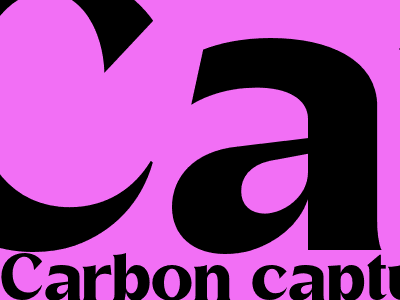
How Carbon Capture Can Revolutionize the Pulp and Paper Industry: Kruger Wayagamack Inc. Leads the Charge
Introduction
In the fight against climate change, carbon capture and storage (CCS) has emerged as a crucial technology. CCS offers industries a way to reduce their greenhouse gas emissions by capturing and storing carbon dioxide (CO2) before it is released into the atmosphere. Within the pulp and paper industry, Kruger Wayagamack Inc. in Quebec, Canada, is leading the charge in implementing innovative CCS solutions.
Kruger Wayagamack Inc.'s Groundbreaking CCS Project
Kruger Wayagamack Inc., a renowned pulp and paper manufacturer, has embarked on an ambitious CCS project to decarbonize its operations. The project, supported by the Canadian government, aims to capture 90% of the CO2 emissions from its kraft pulp mill in Trois-Rivières, Quebec.
The process involves capturing CO2 from the mill's lime kiln and then compressing and transporting it to a deep geological storage site located several kilometers underground. Once injected into the storage site, the CO2 is permanently trapped, preventing its release into the atmosphere.
Benefits of CCS for the Pulp and Paper Industry
The pulp and paper industry is a major contributor to greenhouse gas emissions. By adopting CCS technologies, companies can significantly reduce their emissions and contribute to the fight against climate change.
- Reduced Carbon Footprint: CCS captures and stores CO2 before it reaches the atmosphere, reducing the industry's carbon footprint.
- Enhanced Energy Efficiency: CCS can improve energy efficiency within pulp and paper mills by optimizing processes and reducing waste.
- Economic Advantages: Implementing CCS can lead to financial benefits, such as carbon tax credits and government incentives.
Challenges and Opportunities in CCS Implementation
While CCS holds tremendous potential for decarbonizing the pulp and paper industry, there are challenges to overcome.
- Cost and Scalability: CCS projects can be expensive to implement and may not be feasible for all companies.
- Long-Term Storage Security: Ensuring the safe and permanent storage of captured CO2 is crucial for the success of CCS projects.
- Public Perception: Addressing public concerns and building trust in CCS technologies is essential for widespread adoption.
Despite these challenges, the pulp and paper industry has a unique opportunity to become a leader in CCS implementation. By investing in research and development, collaborating with industry partners, and leveraging government support, innovative solutions can be found to overcome the obstacles and unlock the full potential of CCS.
Conclusion
Carbon capture and storage offers a transformative path for the pulp and paper industry to reduce greenhouse gas emissions and contribute to the global effort against climate change. Kruger Wayagamack Inc.'s pioneering CCS project serves as an inspiring example of how industry leaders can harness this technology to decarbonize their operations. By addressing challenges and seizing opportunities, the pulp and paper industry can unlock the full potential of CCS and emerge as a beacon of sustainability in the years to come.